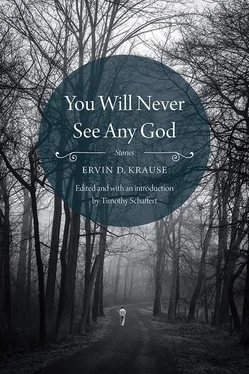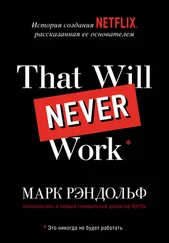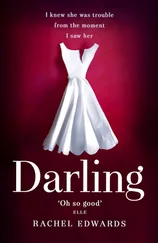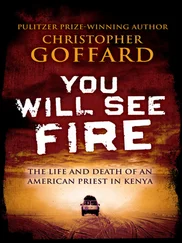But a far more devastating development than the censorship awaited Krause; a year after the dean’s public denouncement of “Anniversary,” Krause was diagnosed with Hodgkin’s disease. For his last seven years — he died on Thanksgiving Day in 1970, at the age of thirty-nine, in the house in Hawaii in which Loretta still lives — he researched experimental cancer treatment, managed his academic career, and wrote new fiction and poetry. Though he never abandoned the pursuit of a book deal, he now wrote with a mind toward a literary legacy that he knew might come only after his death. He often spoke to Loretta of his delight in imagining college sophomores attempting to decipher his meanings.
With “The Snake,” a story still assigned in the classroom, he got his wish of inspiring such careful analysis of his work—“The Metal Sky” and “The Quick and the Dead” have also been reprinted in textbooks and anthologies. But the publication of a collection of his stories proved challenging. Compiled together, the stories were too dark, he was told in rejection letters. And as Loretta sought upon his death to fulfill her husband’s dream of publishing a book, the work’s rough and unflinching vision continued to prove too despairing for both commercial and literary publishing.
In a symposium held at the Library of Congress in 1965, Karl Shapiro, still stinging from the censorship controversy, spoke of the role of a journal in defining literature: “A work printed in the literary magazine has only two destinations: the book or oblivion.” When pressed on this issue by his fellow panelists (“Surely it’s damn good for a writer to be published and to be read by serious readers and serious writers whether or not his particular work is going to be put into hard cover,” huffed Jules Chametzky, then editor of the Massachusetts Review ), Shapiro did “stand corrected.” He went on to say, “I have come back to the old-fashioned, possibly reactionary point of view, that the function of the little magazine is greater today than ever before; more than ever it has to resist the bait of joining society.”
Krause certainly resisted that bait, writing as he did about characters who themselves chafed at the notion of social engagement. His short stories were respected and rewarded in his lifetime when published individually in journals, and he was well established as a short-story writer by the early 1960s. Not only did he receive recognition from the O. Henry Prize but also from the Best American Short Stories series, as edited by Martha Foley and David Burnett, in which his stories were cited as among the year’s most distinctive in 1961 (“The Quick and the Dead”), 1962 (“The Snake,” “The Metal Sky,” “The Fall”), and 1967 (“The Witch,” “The Shooters”). But without a collection, his stories were destined to be lost. “And while the magazine itself is expendable,” Shapiro continued in his Library of Congress presentation, “the book, no matter how bad, is not. It is practically impossible to lose or destroy a book; the Library knows this only too well.”
Though Shapiro might have overstated the unlikelihood of a book’s expendability (even Shapiro’s own acclaimed, award-winning collections of poetry are currently in a state of neglect), the literary hierarchy of the twentieth century was shaped and ordered according to the prominence of an author’s books among readers, publishers, and scholars. And in losing Ervin Krause’s voice, we lost a graphic and captivating representation of post-Depression farm life.
With this collection, Krause’s stories — no longer confined to the archives of middle-twentieth-century literary journals — can enter a new level of consideration. The stories included here are only a fraction of Krause’s complete body of work; some of his stories exist only in handwritten form in his many spiral-bound notebooks. (“Old Schwier,” a story included in this collection, a folktale about maniacal power and devastating regret, is one that Krause never typed nor submitted to journals.)
The stories Krause tells are bleak but they’re exciting in their raw poetic vigor, and they’re vital to our understanding of these rural men and women and their paradoxical nature of a complicated simplicity. These are the larger-than-life legends of a small locality, stories of personal defeat and ruination that most often went untold in a God-fearing community. While gossip and suspicion rend apart these characters’ lives, the narrative is driven by the reader’s very same desire to learn of the intimate transgressions of the sinners and the sinned against.
“Mythic,” Richard Poirier said of Krause’s story “The Snake,” which he selected for Prize Stories 1963: The O. Henry Awards . In his introduction to the anthology (which awarded “The Snake” second place; first prize went to Flannery O’Connor’s classic “Everything That Rises Must Converge”), Poirier writes, “[Krause] is a writer with great meditative dignity of address…. [His images and symbols] are necessarily the most obvious he could borrow from literature and the Bible. He is not in the least complacent about this symbolism, however, making of its contemporary relevance more a mystery than an assumption and showing how it comes into being within the blood stream of people who are not aware of the Biblical analogies for what they are doing.”
You Will Never See Any God
On a hot Thursday afternoon in late May the rain began to fall, warmly at first, spreading gently over the Iowa farmland like warm congealed humidity. The chillness came the next day with the darkening clouds, and the lightning strokes had the cold malevolence of snakes’ tongues. The sullen gullies and the little creeks filled and raged, and the black water sluiced into the placid river, the river itself altering, becoming plugged with dirt and carcasses, a black mucus. Animals floated dead on the roiling water, a sheep or a calf twisted, bloated and huge, and drawn down again, ghost-like, into the black. Muskrats, like pockets of furry mud, paddled without panic, reaching for the banks. Perceptibly the river rose.
Already by Friday evening, or what the people along that river thought to be evening in the somber gloom of rain, the banks of the river were at last overlapped and the levees topped, and the water pulsed through the breaks suddenly with quick and ugly movement like that of an angry reptile’s head. After that first rush of water there was the steady ooze upward, seeping across the rich bottom land, isolating farmyards and drowning the new crops in the lowlands, and the flooded river began to back water up the little, rain-heavy creeks.
The water carried with it fallen trees and the muck of a thousand Iowa farms, the litter of cornstalks and dry hemp and tumbleweeds, driving startled living things ahead, a bedraggled deer or two, the squawking birds, the rabbits, scarred turtles, water rats, and fish too, mud-colored ancient gar and carp, transported by the flood surge beyond the levees into the dead and quiet fields of three-foot-deep water on the lowlands. The rain fell and the water rose and the farmers slogged through the mud of farmyards, sullenly, and fed the wilting cattle and retreated again to huddle in their raincoats beneath eaves.
“She never stop pouring,” old Gerber said to young Dahlman. Gerber lived in a shack along the river. The shack was submerged already and he had taken refuge in Dahlman’s corncrib, where Dahlman always had to put him up whenever Gerber needed it. The need was usually once a year, when the rains came in the spring and the river came up, and then Gerber appeared at his place in the corncrib, stinking and mudded over like some grizzled river reptile, saying the water was up again.
Читать дальше











